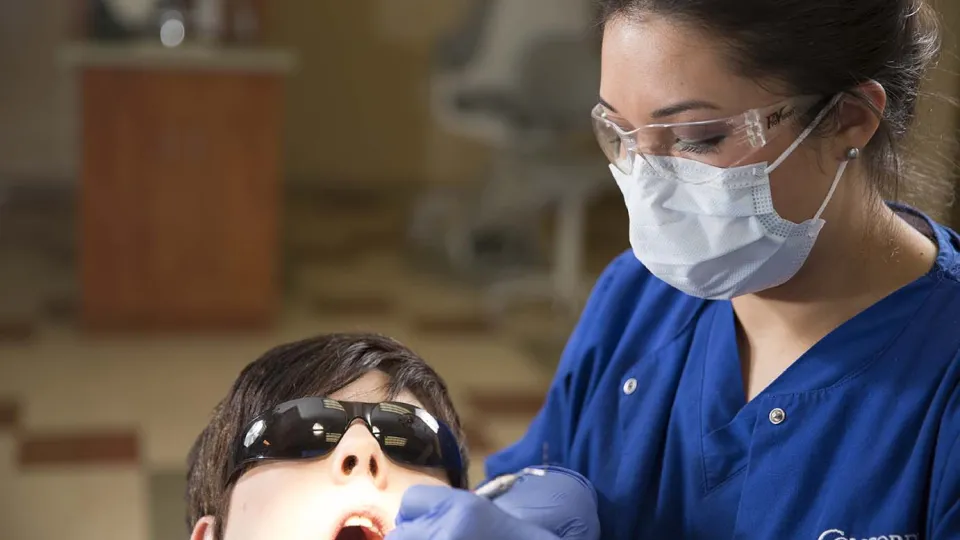
Most of us enjoy a cold, refreshing soda - or, pop, depending on where you live in the U.S. - especially during these sizzling summer months. The sound escaping fizz makes when you open it. The bubbles in the carbonation. The sugar. The caffeine. They all provide enjoyment to soda lovers everywhere. It's a different story, however, when it comes to dental hygiene.
The sugar that makes soft drinks so delicious can produce ill-effects when it comes to good dental hygiene. Sugars break down into acids, which cause decay in the enamel of teeth. That can result in more unpleasant trips to the dentist to have cavities filled. Or worse.
We want our students, faculty, and associates at Concorde to NOT make multiple trips to the dentist for cavities and have good dental hygiene. There are steps soda lovers can take, especially after drinking, that can greatly reduce the effects of sugar on the enamel and maintain good dental hygiene. You don't have to suffer just because you enjoy a Pepsi, Coke, Dr. Pepper or Mountain Dew every now and then (of course, your waistline might have a say as well).
For help, we enlisted one of our resident experts, Diane Osso, who oversees the dental hygienist training at Concorde's campus in Aurora, Colo. She listed six detriments to drinking soda when it comes to good and effective dental hygiene.
Six reasons to avoid soda for good Dental Hygiene
- Soda contains citric acid, which dissolves teeth enamel, Osso said. This acid is approximately 3 on the pH scale, with 7 being water and/or neutral. The longer it takes you to drink the soda, the more harmful.
- If you have gum recession, the acid effects are even worse, as root dentin is much softer than enamel and more prone to erosion.
- Sweetened soda is a double whammy, Osso said, with sugar to feed bacteria and the acid to erode. Again, the effects of the sugar are made worse the longer it takes to drink a soda. For every drink exposure to a sugary soda, bacteria produce acid for up to 20 minutes. Those who drink a lot of soda usually have more rampant tooth decay/caries.
- Those who brush their teeth after drinking a soda actually brush away the top microns of enamel, due to the acid softening the enamel, making it susceptible to wear.
- The added calories usually take the place of nutritious foods and beverages. Good nutrition is key to healthy teeth and gums.
- Sensitive teeth. Drinking soda can wear the protective layer on the root surface when there is a recession. This can lead to very sensitive teeth.
Finally, if you feel as though you can't give up the sugary soft drinks, make it a standing habit of swishing your mouth out with water after drinking a soda. This will help wash off at least some of the sugar clinging to teeth before all the bad effects on your dental hygiene kick in.
Take The Next Step Towards a Brighter Future
We have a Concorde representative ready to talk about what matters most to you. Get answers about start dates, curriculum, financial aid, scholarships and more!




